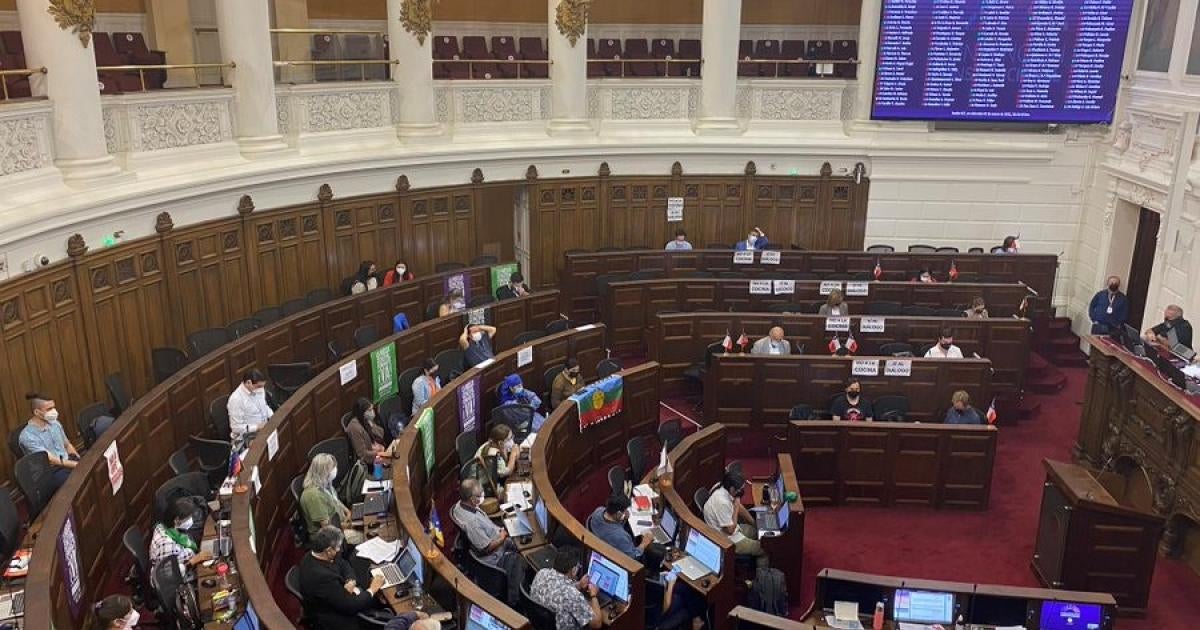Chile Needs More Free Speech, Not Less

Chilean institutions were put to a test in October 2019, when thousands of people took to the streets with demands that started over the price of public transportation and broadened to reflect generalized anger over economic inequality.
The election of a Constituent Assembly to write a new Constitution emerged as a robust democratic response to that unrest.
The Assembly’s diverse composition is itself an accomplishment, bringing to the table a variety of viewpoints that enrich discussions. But its success will ultimately depend on its capacity to write a social contract that serves the needs of Chilean society and protects fundamental rights. Proposals enshrining a more inclusive and equitable society—including through upholding economic, social, and cultural rights, as well as Indigenous and women’s rights—are encouraging. But a key test will also be the new Constitution’s protection of free speech, a cornerstone of democracy. Chile’s current Constitution upholds the right to “express opinions and to inform, without any prior censorship, in any form and by any means.” But the country’s Penal Code contains a variety of vaguely worded articles that threaten free speech. Article 374 establishes prison terms for anyone who shares songs or writings “contrary to good practices;” article 416 punishes any statement “that causes another individual to be dishonored, discredited, or viewed with contempt;” and article 412 imposes criminal penalties for "falsely accusing someone of a crime that could be investigated by authorities." These provisions have been used to intimidate, pressure, and prosecute people—particularly journalists—for exercising their freedom of expression. In September 2020, the House of Representatives passed a bill that would have punished people who “justify,” “approve of,” or “deny” the human rights violations committed during the country’s dictatorship, between 1973 and 1990, with up to three years in prison. In November, the Constitutional Court rejected that article on procedural grounds. In this context, it is disturbing that the Constituent Assembly’s Fundamental Rights Commission, on February 22, approved a proposal to prohibit “denying or justifying grave, massive and systematic human rights violations.” This opens the door to criminalizing statements that—even if offensive—are protected under international human rights standards. Unfounded claims denying rights violations are upsetting to many people and an affront to the victims who suffered them and their families. Victims have a right to justice, and that encompasses the right to know the truth about what happened. Yet the answer to false claims is not to ban them. Instead, rights-respecting democracies should debunk false, offensive statements with accurate information, arguments, and public debate.
The International Covenant on Civil and Political Rights (ICCPR) and the American Convention on Human Rights (ACHR), both ratified by Chile, say laws may only limit free speech to the extent necessary and proportionate to ensure respect for the rights or reputations of others, or “the protection of national security, public order, or public health or morals.” The United Nations Human Rights Committee, which interprets and evaluates state compliance with the ICCPR, has held that “laws that penalize the expression of opinions about historical facts are incompatible” with the Covenant.
The Constituent Assembly should reject the anti-denial language proposed by the Fundamental Rights Commission, and go further. It should include strong protections for freedom of expression that spur reforms and end the criminalization of protected speech in Chilean law, including by repealing the Criminal Code provisions mentioned in this piece. In a region where governments both the Left and the Right are undermining the rule of law and democratic principles, Chile’s recent presidential elections and the Constituent Assembly process distinguish the country as a model for resolving problems through rights-respecting democratic processes.
The Constituent Assembly should build on that track record by prioritizing protection of the fundamental right to free speech as part of the country’s roadmap for a strong democracy.
Read the full article at the original website
References:
